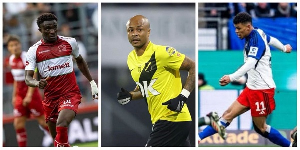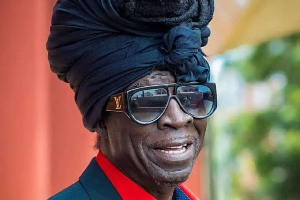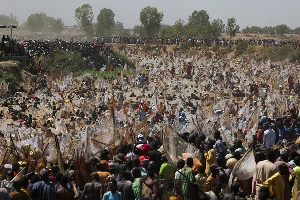Ngugi wa Thiong'o and other East African writers and journalists have recorded in their novels and other writings the words that the masses used to describe the way they saw the new elite of African politicians and top civil servants who took power from the colonial authorities after independence. Wabenzi! The Benz people. That is the name the masses gave to their new rulers and redeemers. Because the one thing that was common with the new bosses was the love of the Mercedez Benz car.
It wasn't only in East Africa. It was the fad in West, Central, North and in Southern Africa. In South Africa, where the racists denied Mandela and company participation in the craze, the ANC elite are fervently living out the tradition some four decades later. The Mercedez, the sleek, supple, black Benz saloon car, was the in thing.
It was the dream of the big man. Actually, in those early days, the concept 'big man' couldn't be painted without a Benz. Some big men actually loved their Benz cars better than their wives. Actually, wives were cheaper to have than the Mercedez for them. The intoxication with the Mercedez car provoked or inspired many things. Popular musicians composed songs for the drinking bars. The masses composed several tales around the Benz craze and laughed their hearts out over them to spite the redeemers.
European, and later Asian, business dealers and 'investors' very quickly got the message. The Benz became the kola, the handshake to the big men for lucrative investments and 'development' projects. The Mercedez reigned for a while as the status symbol for the wealthy, powerful and well-connected. And it usually went with a big belly.
The Mercedez, however, was only representative of a larger and deeper appetite for flashy and nice automobiles. It was the appetite of civilian politicians, military usurpers, and their business and economic cronies who depended on the politicians' goodwill for survival. It was an obsession that grew from generation to generation of political regimes.
Some acquired the cars with piggish gluttony. Gabon's Omar Bongo, or his brother next door Mobutu, tried to acquire every new model of several kinds of cars. Bongo specialized in collecting the sports versions of every car he could find on his frequent trips to Europe.
At home, from Nkrumah's CPP through to Rawlings' NDC, the car-craving syndrome has been with us. The Limann administration, flabby and myopic though it was, ordered a fleet of Stanzas and Peugeot cars. They didn't stay to enjoy them. Before them, the masses jeered at Acheampong's profligacy. Those soldiers were thought to be doling out VW Golf cars to their girl friends and concubines. So, the masses in their trotro coined the name 'Bottom power'.
The very early heady days of Rawling's 'revolution' were marked by a mass craze for cars. It was a confiscation spree. Several hundreds of ordinary citizens had their cars taken away from them at the ports or from their garages. It was a large constituency of early Rawlings enemies. The cadres, meanwhile, smashed most of the cars in days.
It is not at all surprising that Rawlings' exit from power was marked and marred on the last day by a scramble for cars by his followers. It was as if they couldn't contemplate a new future without cars. They were genuinely scared of joining the masses to whom they had promised a heaven that turned out to be hell. They were scared of living 'ordinary' lives.
It is intriguing that the most magnanimous financial gesture that the NPP is making, less than a year since it came to power, is to appease the car hunger of Parliamentarians. Nine months earlier the administration's officials had fought the NDC over the acquisition of cars as 'end-of-service benefits'. What was that all about?
What is this obsession with cars? Why, for once, can't a group of leaders show that they have higher ideals and better priorities than life styles that are the common trait and dream among drug pushers and smugglers? Where is modesty? Where is 'sacrifice'?
General News of Sunday, 14 October 2001
Source: Accra Mail












